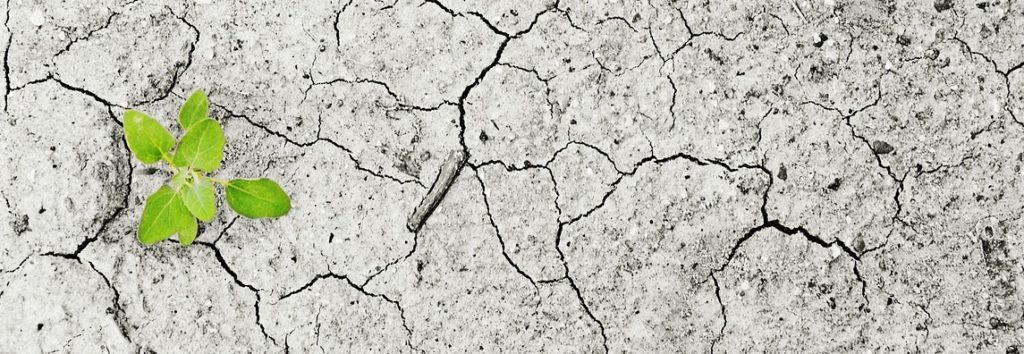“Be the change you wish to see in the world.” This quote from Gandhi is one of my favourite quotes and it has become a mantra I turn to when I think about my work. There are a couple of things to draw out from this quote when we talk about ‘change’ more generally.
A desire for change
Firstly, there needs to be a desire for change. Sure, it can be a no-brainer when we look at the world today – something needs to happen. But, hand to heart, are you ready for it? Are you embracing change or is it rather someone (or something) else who (that) needs to adapt?
I work with our collective responses to the multiple planetary crises, there is very often a desire for something to change. However, it’s definitely not the way we live our lives. Politicians should do something and understand the severity of the problem. Industries should adapt and finally understand that they are the culprits. International organisations should finally step up and produce the change the globe need.
But what about us individually? Are we ready to change for the sake of the climate? Do we desire ‘change’ to save the planet?
Sometimes it’s easier said than done. Our desire might be pure and true but the implementation is tricky. And that’s where I encourage my clients to dig deep and ask themselves what it is precisely they can change in their lives. Because only by cementing the motivation for change, will it last.
Know the options
The number one question I hear from clients is this: what can I possibly change? That task, the task of figuring out what anyone can possibly do is something I turn around to the individual. What do you want to change?
When it comes to living a low-carbon lifestyle, a sustainable life or even a self-sufficient life, the potential is endless. Just google it and you will find countless ideas, lists and examples of what you can do. Celebrities will show you the latest tree-planting project they support, bloggers will share their latest DIY-project for reusing their waste, and YouTubers will take you on a tour of their latest plantings on their farm. All these examples are great and certainly something to aspire to. But, no one knows your life better than you. Only you know if you have the will, patience, and space to plant a food forest. No one has walked in your shoes.
And that is where change can be tricky. You have to understand the options available to you and how they could fit into your life. And it’s your responsibility to do your research to make your ideas come true. Change starts with a whole lot of thinking, research, and gathering of ideas.
Embody the change
And finally, after establishing your motivation and doing all the research, the hardest part begins: being the change.
Gandhi is said to have uttered this sentence about being the change when he was talking to a little boy about eating sugar. The story goes that the boy’s mother wanted Gandhi to tell her son that sugar wasn’t good to eat. But Gandhi couldn’t do that straight away because he himself was still consuming sugar. So, he asked the mother and her son to come back two weeks later. By then Gandhi would have stopped eating sugar himself and he could adequately counsel the boy.
Whether that story is true or not, it shows the importance of embodying the change you wish to see in the world. No teacher is believable when he or she doesn’t live up to their teachings. The same goes for any parent – children will model their parent’s behaviour, not their words. Telling anyone what should be done without doing it yourself will not lead to change. Your actions don’t have to be perfect but they have to be authentic.
Now, I’m saying all this from experience. I’ve been searching for the right path in my life for the past decade. It started with working for an NGO in the development sector where I thought I could make a difference. Upon realising that my work wasn’t the kind of change I wanted to see in the world, I left. I went back to studying and ultimately exploring what it means for me to fail my own standards. A few years down the road and today I have minimised my physical possessions and I’m planning a self-sufficient farm. My motivation is clear: I want to leave a healthy planet for my children. My research is still ongoing and I’m far from perfect but I talk about it to learn.
Change is not linear
My story shows one important aspect of ‘being the change I wish to see in the world’ – it’s not linear. When I first started out at the NGO I was already beginning to embody the change I wanted to see. I also continued learning and exploring what works in my life. All this was still flawed when I look at it today but I lived true to what I believed at the time.
And the word already says it all: change. It’s the opposite of stagnation and it gives us room to grow. And there is no end to it. Whether it’s eliminating sugar or stopping climate change – change continues. And even if you think you have managed to succeed, embodying the changes you have made will continue until there is no one left to learn from you.
This post first appeared on the Skilled Helpers Collaborative to which I contribute regularly. All thoughts are my own, unless stated otherwise.


Hi Rika,
Visiting your website again and this is truly a brilliant article. I feel a change is needed in my personal life, not quite sure yet how, however, the urge is there. And I think that is the first step towards change. Being aware of the need for it.
Hope you’re enjoying your vacation time to the fullest. Warm regards, Patty